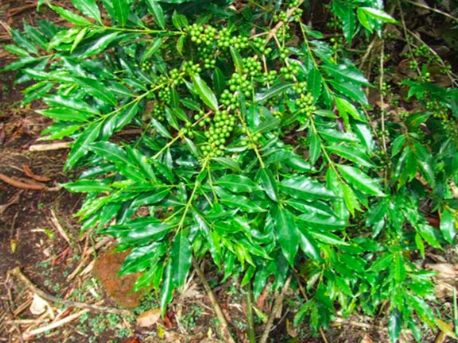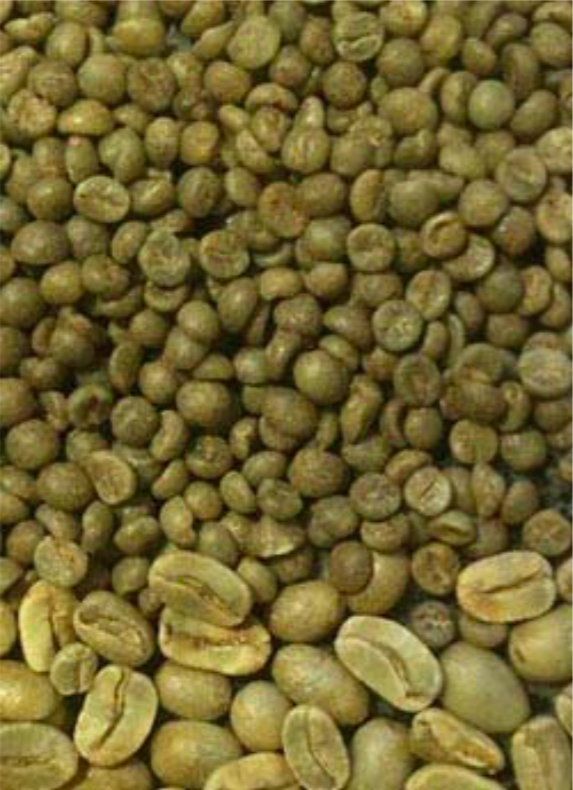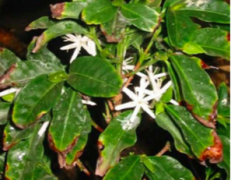Comparative Analysis and introduction of large mutation Maragogype and small mutation Mokka
Professional barista communication, please pay attention to coffee workshop (Weixin Official Accounts cafe_style )
Large mutation Maragogype ·From Typica.
·This mutant plant is taller than normal coffee in all characters, but lower in yield.
·The genetic factor is a pair of dominant Mg, and the progeny of normal coffee are large, but the yield is higher, so they are often used as rootstocks and hybrid parents.
Small Mutation Mokka
It evolved naturally from bourbon in Yemen and later spread to Reunion Island, where it was transplanted to Brazil, Hawaii, Guatemala, and Colombia. This mutant has short plant, small leaves, large glands, small fruit, naturally small bean shape (bean width 0.39--0.43 cm) and round, but good quality, low yield. Small mocha also has small round (male) beans, but the proportion is only 2%, far lower than the average Arabica 5- 10%.
After arriving in Hawaii, the small mocha was crossed with Typica by the research unit and became a tall mocha to adapt to the terroir of Maui Island in Hawaii, but the bean shape still maintained its original cute appearance. Guatemala or Colombia mocha may be from Brazil or Hawaii, retaining the original dwarf characteristics if from Brazil, or modified tall mocha if from Hawaii.
Small Mutation Mokka


Mokka Pacamara Natural
Small Mutation Mokka Genetic Combination
The genetic factors were two pairs of factors, one pair was the complete recessive factor lrlr of coffee law (pointed bourbon) mutation, and the other pair was the complete recessive factor momo.
· LrLrMoMo;LrlrMoMo are normal Arabica
· LrLrMomo normal but leaves small, glands slightly larger
· Lrlrmomo; LrLrmomo grows to dwarf
· lrlrMomo; LrlrMomo Law's Coffee
· lrlrmomo Standard Dwarf Mocha Variety
Mokka was originally a place name, now a taste, and perhaps a scientific revolution in the future.
Mocha used to be one of the most sought-after coffee beans in the world. The name mocha coffee originated from the yemeni town of mocha on the red sea coast. This region monopolized coffee exports in the 15th century, especially in the Arabian Peninsula. This particular coffee bean is now known as Arabica and still grows in the hills of Yemen.
It's from Muha, a now-abandoned port.
Leaving Hong Kong was something only the richest could afford. a
All of this coffee was consumed by the French royal family. as much as
Although production rose and prices fell, the coffee remained expensive.
Expensive, and hot.
Mokka was originally a place name, now a taste, and perhaps a scientific revolution in the future.
Arabica coffee has been grown in a wider area, but Yemeni varieties are available.
It can still be the most delicious. Just like grapes, these crops suck from the soil
take nutrients and create a unique flavor that is difficult to replicate elsewhere.
It's over.
Now mocha history has taken a new turn. In 2004, a type of Arabica coffee grown in Ethiopia was found to contain far less caffeine than other types of coffee. Generally speaking, coffee flavor is lost by removing coffee, so this natural decaf coffee bean is very exciting. A chemical in coffee beans called theobromine (also found in cocoa beans) is added a methyl group to make caffeine: this chemical process is called methylation. However, in this coffee bean, this process seems to be limited. Scientists are trying to transplant similar traits into other species. So maybe one day mocha will mean high-quality decaf coffee.
Important Notice :
前街咖啡 FrontStreet Coffee has moved to new addredd:
FrontStreet Coffee Address: 315,Donghua East Road,GuangZhou
Tel:020 38364473
- Prev

Introduction to Le Roy Lloyd's Coffee (Laurina; Bourbon Pointu) Bourbon Tip
Professional baristas exchange please follow the coffee workshop (Wechat official account cafe_style) Le Roy Lloyd's Coffee (Laurina; Bourbon Pointu) bourbon sharp body mutated from Bourbon, is a variant of var. Laurinan DC, short tree, conical, small leaves, but good quality beans-slightly sour, low bitter, meticulous, with vanilla, citrus, almonds and
- Next

The world's best coffee producers are threatened by climate change
Pay attention to coffee reviews (Weixin Official Accounts vdailycom ) and find a good cafe to open your own shop. What is your favorite coffee? Cat shit, blue mountains don't just look here, in fact, the best coffee to drink in Ethiopia. An international coffee connoisseur ranks Ethiopian coffee as the best coffee in the world; American thrillist.com
Related
- Does Rose Summer choose Blue, Green or Red? Detailed explanation of Rose Summer Coffee plots and Classification in Panamanian Jade Manor
- What is the difference between the origin, producing area, processing plant, cooperative and manor of coffee beans?
- How fine does the espresso powder fit? how to grind the espresso?
- Sca coffee roasting degree color card coffee roasting degree 8 roasting color values what do you mean?
- The practice of lattes: how to make lattes at home
- Introduction to Indonesian Fine Coffee beans-- Java Coffee producing area of Indonesian Arabica Coffee
- How much will the flavor of light and medium roasted rose summer be expressed? What baking level is rose summer suitable for?
- Introduction to the characteristics of washing, sun-drying or wet-planing coffee commonly used in Mantenin, Indonesia
- Price characteristics of Arabica Coffee Bean Starbucks introduction to Manning Coffee Bean Taste producing area Variety Manor
- What is the authentic Yega flavor? What are the flavor characteristics of the really excellent Yejasuffi coffee beans?

